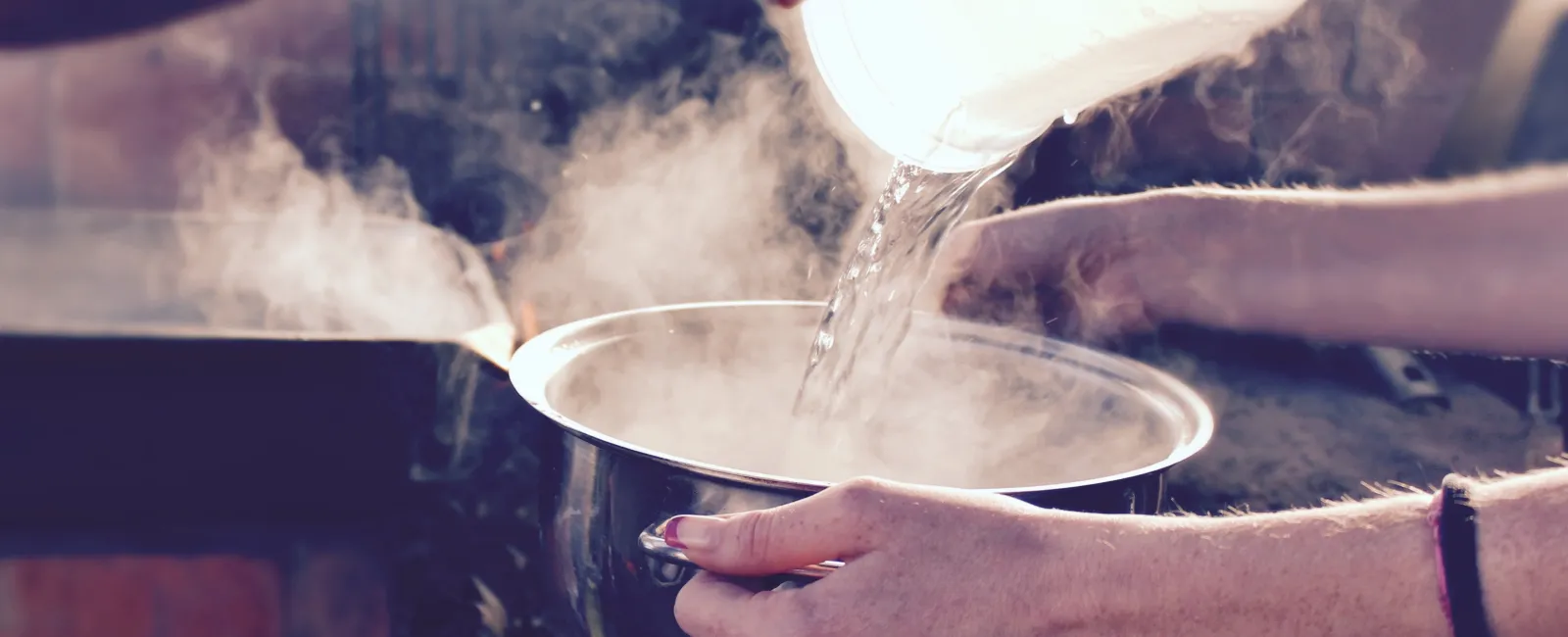What is a boil water advisory, what to do during an advisory, and your other water FAQs answered.
A boil advisory, also known as a boil water notice, is a public health announcement issued by water authorities or government agencies to inform residents that the water supply may be contaminated and should be boiled before consumption. It is typically issued in response to the detection of potential pathogens, such as bacteria, viruses, or parasites, in the water system.
What is a Boil Water Advisory?
Boil advisories are precautionary measures taken to protect public health. They are usually issued when there is evidence of compromised water quality, such as a break in the water main, loss of pressure in the distribution system, or the presence of microbial contaminants in water samples. The advisory remains in effect until further tests confirm that the water is safe for consumption, at which point the authorities will lift the advisory. During a boil advisory, residents are advised to bring the water to a rolling boil for at least one minute before using it for drinking, cooking, making ice, brushing teeth, or any activity that involves ingesting the water. Boiling the water kills most types of harmful organisms, making it safe for consumption.
What to do during a Boil Water Advisory?
If your local health officials issue a boil water advisory, you should use bottled water or boil tap water. If you have don't have access to bottled water, you should be boiling your water. If your water is cloudy, it should be filtered first before boiling. Fill a pot with water, heat to a rolling boil, let boil for at least one minute, then turn off heat source and let cool. The water is now safe for use and consumption. Caution: Water contaminated with fuel or a toxic chemical will not be made safe by boiling or disinfection. Use another source of water if you know or suspect that your water might be contaminated with fuel or a toxic chemical.
Can I use tap water to wash my hands?
In many situations, you can use tap water and soap to wash your hands. Follow the guidance of your local public health officials or emergency managers. Be sure to scrub your hands with soap and water (warm or cold) for 20 seconds and rinse them well under running water. It is important to dry hands completely with a towel or by letting them air dry.
Can I use tap water to brush my teeth?
No. Use bottled water or boiled water that has cooled to brush your teeth.
Is it safe to take a shower or bath?
Yes, it is safe to take a bath or shower, but be careful not to swallow any water. Use caution when bathing babies and young children. Consider giving them a sponge bath to reduce the chance of them swallowing water.
What about doing laundry?
Yes, it is safe to do laundry as usual.
Should I give my pets boiled water?
Yes. Pets can get sick from the same contaminants as people. It is a good idea to give them bottled, boiled, or disinfected water. Boiled water should always be cooled before using.
I already or accidentally drank the water. Will I get sick?
Most people who happen to drink this water will not get sick. If you do get sick, the symptoms are similar to food poisoning: nausea, diarrhea, cramps, and possibly a mild fever. If you are concerned about your health or the health of a family member, contact your healthcare provider or your local health department.
What to do after a Boil Water Advisory is lifted?
Residents are advised to "flush" their water following the lifting of a boil order in order to clear plumbing of potentially contaminated water. Flushing your household and building water lines includes interior and exterior faucets, showers, water and ice dispensers, and water treatment units for at least 15 minutes and up to 30 minutes. Most kitchen and other household water filters do not remove bacteria or viruses, but UV Light Purifiers can help kill any bacteria. Filters collect germs from water, so all water filters should be replaced after the advisory has been lifted.
Listen to your local water authorities or government agencies.
It is important to follow the guidelines provided during a boil advisory to avoid the risk of waterborne illnesses caused by contaminated water. Residents are typically notified through various channels, including public announcements, local media outlets, and direct communication from water authorities.
